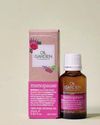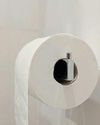The placebo response offers an opportunity to embrace the potential of mind-body medicine. So can mind really move matter?

Imagine a treatment that can relieve pain, improve sleep, reduce stress, ease nausea and reduce depression. In fact, it can help with almost any illness you can imagine. It’s free, available everywhere and has no nasty side-effects. It’s not new, nor is it high-tech.
That treatment is the placebo effect — the mind-body phenomenon that has been scorned for decades in medicine, but which contemporary science is proving to have powerful potential for healing.
The term “placebo effect”, also known as the “placebo response”, is used in medical literature to describe what happens when a “fake” treatment, such as a sugar pill or sham acupuncture, improves a patient’s condition.
It was first used in this context in 1955 by US physician Henry Beecher. In a now famous article, Beecher collected data from 15 studies with 1082 patients suffering varying degrees of pain. He showed that a placebo painkiller was effective in an average of 35.2 per cent of cases. Since then, innumerable researchers have verified the importance of the placebo effect in treatment for a range of conditions.
Researchers use groups receiving a placebo treatment in their studies to help separate how much benefit comes from the so-called active treatment (such as a drug or type of therapy) from what can be attributed to the placebo response. Placebo effects generally occur in about 30 per cent of cases.
Shifting the stigma
This story is from the Issue#177 edition of WellBeing.
Start your 7-day Magzter GOLD free trial to access thousands of curated premium stories, and 9,000+ magazines and newspapers.
Already a subscriber ? Sign In
This story is from the Issue#177 edition of WellBeing.
Start your 7-day Magzter GOLD free trial to access thousands of curated premium stories, and 9,000+ magazines and newspapers.
Already a subscriber? Sign In

YOGA FOR IMPERFECTION
Life is messy and we all make mistakes, but by embracing imperfection, we can begin to accept all parts of ourselves.

Creating the foundations of ritualist self-care
As a busy mum of a three-year-old and expecting another baby, finding time for self-care often feels like a luxury.

Are you doom spending?
If \"doom spending\" has become your go-to for coping with stress, you could be making withdrawals from not just your bank account, but your health too.

THE POWER OF music
Most of us enjoy music. But science shows music is central to being human and its effect on us is far more astonishing and impactful than we realise. Music is fundamental to life.

SYNTHETIC FOODS
Synthetic, or genetically modified, fake meats and the like attempt to mimic real meat in both looks, taste and texture. But how much do we really know about the production process and how do they affect the environment and our bodies?

Embracing the power of nature
Menopause is more than just a biological change, it represents a significant life stage that can present numerous challenges - from hot flushes and mood swings to fatigue and sleepless nights.

Jan Fran
From a young age, Jan Fran's deep curiosity and keen interest in social issues sparked her journey into the world of journalism. As an accomplished journalist, media commentator and broadcaster, Fran's passion for storytelling has always been driven by a desire to explore, question and shed light on the world around her.

Helping teen girls thrive
Statistics reveal that many more teen girls are struggling with mental health issues. What's going on with them? More importantly, what can we do to help them flourish?

Your ageing eyes
Your eyes work hard for you every waking minute. It is no surprise that how your eyes age will be determined by how you protect them. Eating the right foods can go along way towards ensuring that your eyes stay healthy for a lifetime.

The bottom line
During the Couid pandemic, we were shocked to see people fighting in supermarkets over toilet paper and to see empty shelves that had once held roll after roll. The reasons behind the run for toilet paper during this time reflect the unique place that it holds in our psyche and are deeply rooted in our history.